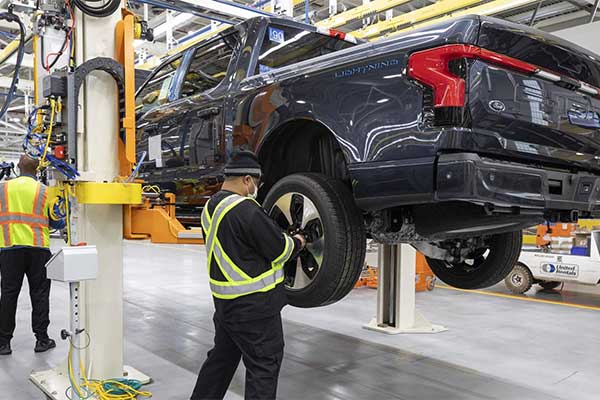- Ford Motors is hitting the brakes on its EV battery plant project in Michigan.
- The reason?
- Pivotal contract negotiations with the United Auto Workers union that could reshape the automotive industry's labor landscape.
Ford Motors has temporarily halted the construction of its upcoming electric vehicle (EV) battery plant in Michigan.
This move comes as the company negotiates a contract with the United Auto Workers (UAW) union.
The automotive industry is experiencing a monumental shift towards electric vehicles, prompting major car manufacturers to invest substantially in the technology. Notably, electric vehicles require fewer components and less manual labor for assembly than their traditional counterparts. This evolution raises concerns about labor agreements and the industry’s workforce trajectory.
Ford’s innovative plant, which has an investment of $3.5 billion, epitomizes this industry-wide transition. Nevertheless, the company has chosen to delay construction until they’re certain of the plant’s competitive operation.
Union Discussions
The UAW has been engaging in contract dialogues with the big three Detroit automakers, including Ford. Recently, the union initiated selective strikes against these corporations, with the transition to electric vehicles being a focal point in these discussions.
Central to the UAW’s concerns are job security and compensation. As the production of electric vehicles requires notably less labor than traditional gasoline-powered cars, there’s an imminent risk of job reductions and decreased earnings for employees.
What’s Next?
Ford has acknowledged that there are still “significant gaps” to bridge in their discussions with the UAW. The results of these negotiations could shape the labor landscape of the automotive industry and the broader shift to electric vehicles.
With continued heavy investment in EV technology, car manufacturers also face the challenge of navigating labor talks and ensuring a just transition for their staff. The situation at Ford’s Michigan facility highlights the intricate challenges inherent in this evolution.











Comments